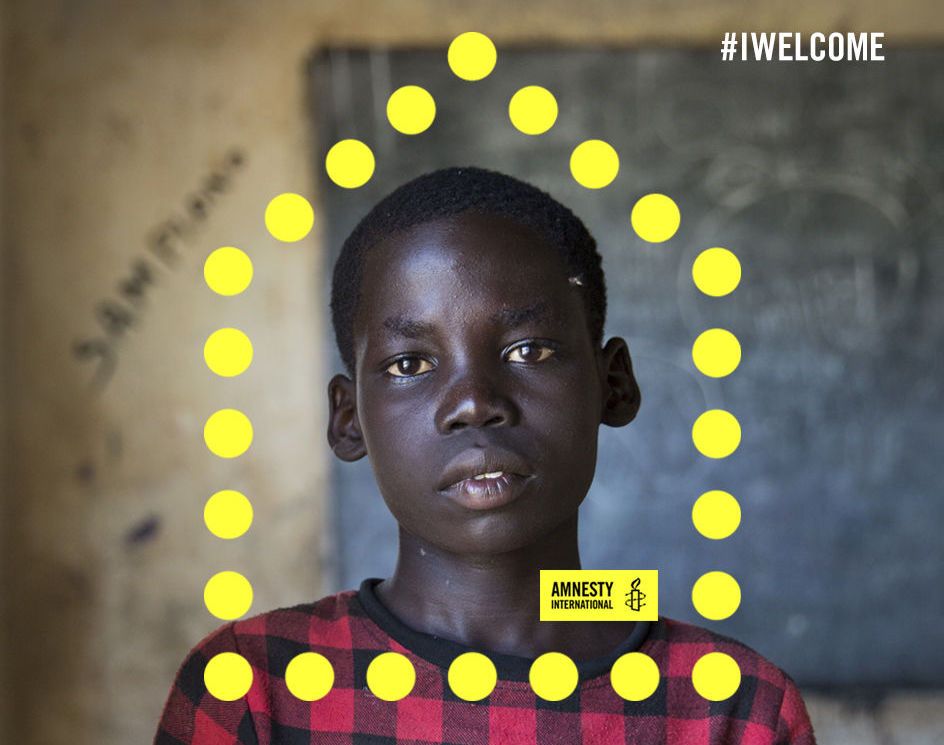
In the six weeks since taking office, Donald Trump has waged an all-out war on human rights. Responding with outrage is not enough. It is the time, and the responsibility of all who hold those rights dear, to fight back.
Many of us are still trying to come to terms with the government’s announcement advising Nigerians not to travel to the United States because the chaos created by the executive orders of President Donald Trump have seen many Nigerians with ‘valid visas’ denied entry.
For those who watched, appalled, as Donald Trump bellowed to victory in the 2016 US presidential election on the platform of fear, xenophobia and hate, there was always the consolation that his poisonous campaign rhetoric might be a mere vote-winning strategy. Style over substance. Just words.
Yet with perturbing alacrity, the new president has swiftly backed up this hateful discourse with a series of concrete policy decisions that pose a grave and immediate threat to human rights in the USA and beyond.
A series of repressive executive orders passed by Trump in his first two months in office will have far-reaching, catastrophic consequences. And this is not just a US problem – its far from it. The policies of Trump’s White House will have a ripple effect in all corners of the globe, with the most vulnerable hit the hardest.
It should come as little surprise that Trump’s two main targets in the Oval Office are the same ones he singled out on the campaign trail: Muslims and refugees. If you’re a refugee who also happens to be Muslim, so much the worse.
With the January 27 executive order, “Protecting the Nation from Terrorist Attacks by Foreign Nationals”, Trump declared war on Muslim refugees around the world. Its haphazard implementation swiftly sowed fear and chaos.
There was a brief reprieve on February 3, when a US District Court issued a nation-wide order blocking the blatantly discriminatory measure, but this was short-lived.
The fact that this comes amid a global emergency in which 65 million people have been displaced due to war and persecution underlines its callousness.
On Monday, following weeks of suspense, the White House issued a revised executive order. Despite the tinkering at the edges, it is a thinly veiled affront to the judiciary and remains a Muslim ban by another name.
With the stroke of a pen, the president again shut the door to anyone – including refugees – from Syria, Iran, Libya, Somalia, Sudan and Yemen. Not only are these all predominantly Muslim countries; they are places where most people seeking asylum are fleeing conflict and human rights violations.
By slightly narrowing the scope of the new executive order, the Trump administration may have remedied some of its predecessor’s constitutional flaws. But it remains blatantly discriminatory and reinstates many of the most repellent elements of the original.
Trump claims to be blocking the entry of “terrorists” who would harm the USA. But in reality, there is no data to support the view that refugees – Muslim or otherwise – pose more risk of committing acts of terrorism than citizens. Trump also imposed an annual refugee cap of 50,000. With Barack Obama’s administration having already pledged to admit 110,000 refugees in the current fiscal year, this order will affect 60,000 vulnerable people in 2017 alone.
The fact that this comes amid a global emergency in which 65 million people have been displaced due to war and persecution underlines its callousness.
But in the era of “fake news” and trumped-up “alternative facts”, the truth is clearly of no interest to the president.
For the refugees and migrants facing real life-and-death decisions, pretense and fakery are not luxuries they can indulge in. Since the travel ban first took effect, Amnesty International and others have encountered tales of terrible suffering in its wake in various countries around the world. Families rent asunder, lives put on hold, hopes of new beginnings crushed overnight.
Amnesty International’s ‘I Welcome’ campaign has been a powerful platform for millions of global citizens who choose to stand in solidarity with refugees. Trump’s border security policies, based on hatred and fear, are a direct confrontation to that movement.
Like the man who went to Iran for his father’s funeral and was suddenly faced with the prospect of not being allowed to return home to the US. Or the Yemeni family in New York whose one-year-old baby is now stuck thousands of miles away in Malaysia because the travel ban forced them to leave her behind. Or the persecuted Sudanese journalist living underground in Egypt, fearing for his life, who is now questioning how safe Trump’s USA would be to seek asylum in.
Then there are large numbers of refugees in other countries – overwhelmingly in the “global South” – who may now feel abandoned by the international community. Will Trump’s travel ban prompt a knock-on effect of those host countries, increasing forcible expulsions of refugees?
Amnesty International’s ‘I Welcome’ campaign has been a powerful platform for millions of global citizens who choose to stand in solidarity with refugees. Trump’s border security policies, based on hatred and fear, are a direct confrontation to that movement.
In the six weeks since taking office, Donald Trump has waged an all-out war on human rights. Responding with outrage is not enough. It is the time, and the responsibility of all who hold those rights dear, to fight back.
Many Nigerian’s have been narrating ordeals of being detained and later deported despite having valid entry visas. This goes to show: we all must raise our voices in the face of discriminatory policies against anyone, anywhere.
Morayo Adebayo, is a Researcher with Amnesty International Nigeria, Abuja.
END

Be the first to comment